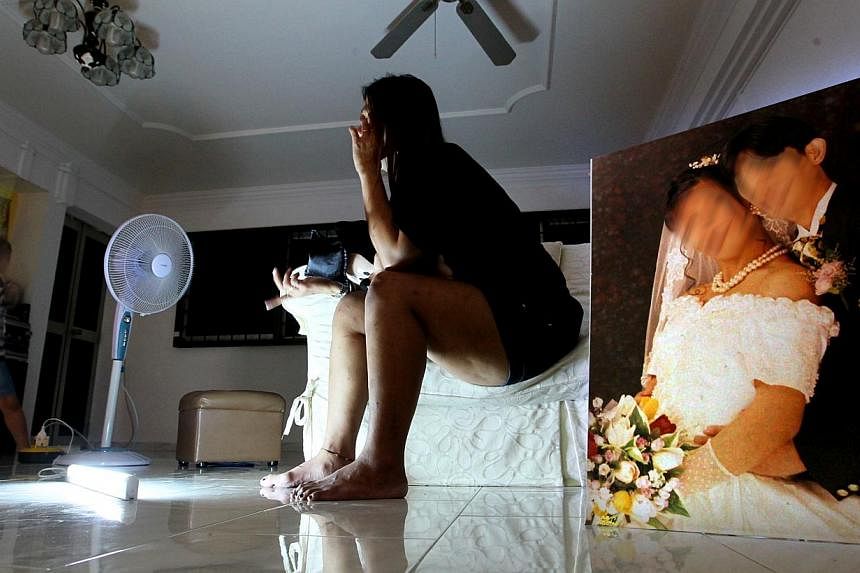Family law academics, myself included, have long argued that laws relating to spousal maintenance in divorce cases should be gender-neutral, equally available to both the husband and wife based on their needs.
Section 113 of the Women's Charter only enables a divorced woman to seek maintenance from her former husband. The provision aims to ensure that a wife who has been economically disadvantaged by her role in the marriage is fairly provided for when she moves on to post-divorce life. This is different from treating maintenance as a "reward" for homemaking sacrifices.
Straits Times writer Andy Ho suggested in the article "Pay women alimony for 'love labour'" (May 16, 2014) that "When these gendered roles in marriage are factored in, alimony can be seen as an entitlement, not a handout. That is, it is simply money that the man owes the woman because of her manifold investments in the marriage... Even a nominal alimony, which Justice Choo derided, is required in most divorces according to the co-investment or creditor models, to equalise the genders if the woman's non-market contributions to the marriage are to be justly acknowledged."
The article suggests that maintenance should be given to a wife as an entitlement because she invested effort in the marriage through her homemaking contributions. But this view does not sit well with the current law of maintenance and the division of assets.
The law already provides for the recognition of homemaking contributions when the court divides matrimonial assets between the spouses. The courts have explained that the underlying basis for the maintenance of a former wife is the "financial preservation" of the wife. It is also used to even out any financial inequalities between the spouses, taking into account any economic sacrifices by the wife during marriage. A homemaker wife who has given up her career or accepted a slower career path will find that her earning capacity has been diminished by the family-driven choices she made. It is fair to award her the maintenance sum that she needs in order to transit into post-divorce life, having been financially disadvantaged from taking on the homemaking role for many years. Her homemaking contribution is one of a number of factors that are relevant in determining the maintenance sum, but it does not form the basis for maintenance.
Family law ensures that homemaking contributions are recognised when the court divides up the matrimonial assets between the spouses upon their divorce. The breadwinning and homemaking efforts of both the husband and the wife are accorded recognition when the court exercises its power in Section 112 to divide matrimonial assets in a "just and equitable" manner.
In 2007, the Court of Appeal held that "the division of matrimonial assets under the Act is founded on the prevailing ideology of marriage as an equal cooperative partnership of efforts".
Thus the power to divide assets aims to give to each spouse a fair share of the assets acquired during the marriage through their different contributions. The power to order maintenance primarily aims to provide for the needs of the wife who may have suffered a financial disadvantage.
Maintenance plays a supplementary role to the Division of Assets in evening out the financial inequalities between the spouses. Together, the two powers ensure fairness in the financial arrangements when a marriage ends.
In Singapore, judges have done their best to ensure fairness.
Last month, Justice Choo Han Teck rightly rejected a woman's $120,000 lump sum maintenance claim from her former spouse, as she was financially independent.
Maintenance claims have been dismissed in many cases, particularly in situations where the wife has significant independent means or has received a substantial share of the matrimonial assets.
But why is the maintenance obligation one-sided in favour of women?
Historically, the common law doctrine of "unity of personality" had the effect of fusing the spouses' legal personalities. As a result, the law treated only the husband as having the legal personality to carry out legal acts for both of them, while the wife gave up her legal capacity upon marriage. In return, the wife obtained the right to be maintained by her husband.
This common law was received in Singapore in 1826.
Maintenance thus began as a one-sided obligation under common law. Although there was the opportunity to remove this unilateral character of maintenance when the Women's Charter was enacted in 1961, the Charter retained the wife's unilateral right to be maintained.
In 2011, the Parliamentary debates on the amendments to the Women's Charter made it clear that the one-sided maintenance obligation would remain. The then Minister for Community Development, Youth and Sports explained that "the brutal truth is, even today, although we have made much progress, women and children still need protection".
Today, however, husband and wife are equal partners in the marriage union. Section 51 of the Women's Charter provides that women are able to hold and dispose of any property.
Both spouses are also mutually bound by Section 46 of the Women's Charter to cooperate with each other in safeguarding the interests of the union. It follows that each is equally obliged to provide for the other.
Of course, even if the law was made gender-neutral, it is likely that in reality there would be far more homemaker wives than homemaker husbands seeking maintenance. But the law would be more just and fairer than it is today.
The writer is an Associate Professor, Faculty of Law, at the National University of Singapore.

